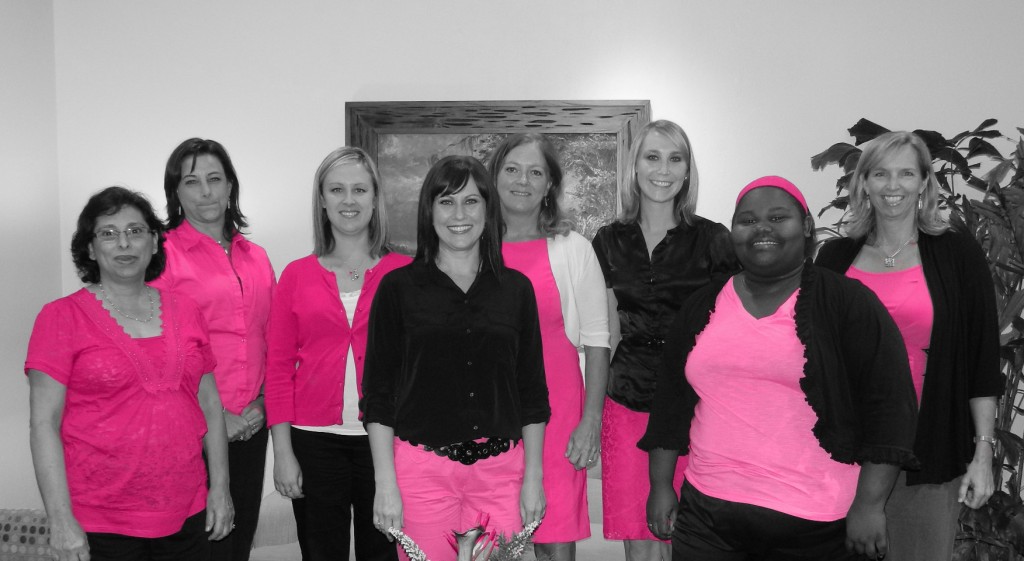Breast Cancer Awareness and Your Employees

National Breast Cancer Awareness Month is all about spreading one simple, powerful message: detection and prevention can save lives. Talk to your employees and post articles such as this and help to bring awareness.
Early breast cancer detection and prompt treatment is vital to a successful outcome.
The size of breast cancer and how far it has spread are two of the most important factors in determining the prognosis, or the chances for survival. Early screening is critical to catching the cancer when it’s more likely to be smaller and contained in the breast.
Early Screening Recommendations
The American Cancer Society recommends that women have:
- Clinical breast exams every 3 years in their 20s and 30s, and every year after 40
- Annual mammograms starting at age 40
- Awareness of how their breasts normally look and feel, so they can report any changes to their doctor for further examination
Lower your risk of breast cancer with these five behaviors.
Reach and maintain a healthy weight. Being overweight or obese can increase your breast cancer risk. Extra weight can increase you insulin levels which are linked to some cancers.
Exercise regularly. A study from Women’s Health Initiative showed an 18% reduction in risk with only 1.5 hours per week of brisk walking. The American Cancer Society recommends a weekly minimum of 150 minutes of moderate-intensity activity or 75 minutes of high-intensity, or a mixture of both. Make sure to spread the workouts throughout the week for the most benefit.
Don’t sit too long. “Sitting is the new smoking.” Studies have shown sitting for more than 60 minutes at a time without stretching or standing can cause irreversible health concerns. One of these concerns is the likelihood of developing cancer, especially in women. The risks increase if you sit more than 6 hours a day.
Limit alcohol. Studies have shown 2-5 alcoholic drinks a day have shown higher risks of developing cancer than those women who have one drink a day. Some research even shows as little as 3-6 glasses of wine a week can slightly increase your chance of developing breast cancer.
Avoid or limit hormone replacement therapy. Many postmenopausal women consider this therapy to ease their symptoms such as night sweats, hot flashes, etc. Research has revealed that women that take a blend of estrogen and progestin may be more likely to increase their chance of breast cancer. Discuss this with your physician and the options to control your menopausal symptoms and if you decide to use HRT to use a minimal dosage and for the shortest amount of time necessary.
